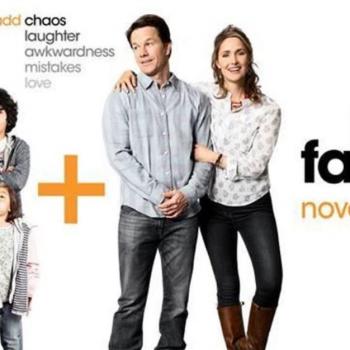
Ever since Patricia Arquette gave her acceptance speech for Best Actress at the 2015 Academy Awards, calling for wage equality for women, it has been shaping up to be the Year of Women in film. Joss Whedon recently got caught (probably unfairly) in the crosshairs of the feminist debate, being accused of making Scarlett Johansson’s character, Black Widow, in The Avengers: Age of Ultron significant only in how she relates to a man. Mad Max: Fury Road, on the other hand, has been lauded for being a female-centric action film.
There has certainly been a push in recent film criticism for more films that explore the world from a woman’s point of view. As a young man with two brothers, this was not the sort of thing I cared about. But, now as a father of two daughters who challenge my thinking, this intrigues me. Are the movies my daughters watch giving them a picture of women who are fully human, and who have friendships with other women? Or are they only seeing women who exist in relationship to a male hero, or worse, are only important if they are beautiful or sexy? When I go back to the movies I grew up with, I realize just how many of them are centered on a male character and a male point of view. This may be because most directors (about 93%) and screenwriters are male, but also because box office demographics show that movies made for males 10-25 make the most money (and what studio doesn’t want to make money?). Just as I have to be honest in acknowledging that I have been slow to realize my white privilege, I also probably need to acknowledge that I have been slow to realize my male privilege in media, how most pop culture has been aimed at people just like me.
In 1986, Liz Wallace and Alison Bechdel unwittingly invented the ‘Bechdel Test.’ This test has three rules:
1. The movie has to have at least two women in it.
2. who talk to each other.
3. about something besides a man.
This doesn’t seem like such a hard test, but it is kind of shocking to realize how few movies can actually pass this test (half of the top-grossing films of 2013 fail the test). And, while the test is certainly limited, the good news is that the role of women in film is not an entirely new concern. In 1996, the British director Mike Leigh wrote and directed a film called Secrets and Lies that passes the Bechdel Test, with a ton of room to spare.
Secrets and Lies is about a successful woman named Hortense (Marianne Jean-Baptiste) who decides to search for her birth mother. Hortense, who is black, is surprised to find that her mother, Cynthia (Brenda Blethyn), is not only white, but also lower class and a bit of a mess. The scene where they meet for the first time is a master class in acting, as we watch Cynthia go through a whole range of emotions in an 8 minute uncut scene. The two women must overcome their fears to get to know one another and to face friends and family with some uncomfortable truths.
One of the things that strikes me about Leigh’s film is that he doesn’t just flesh out the two main characters. He loves all of his characters. Timothy Spall and Phyllis Logan play Cynthia’s brother and sister-in-law and are sympathetic and well-drawn as two people in the midst of a tough marriage and family situation. Spall’s character, Maurice, is a photographer and is constantly observant and sympathetic towards other people, while Jean-Baptiste’s Hortense is an optometrist who, as a black professional and outsider to Cynthia’s family, must always be aware of how other people view her.
The rich characterization Leigh achieves in Secrets and Lies is not a fluke, as another one of his masterpieces, Another Year (2010), matches the level of character depth, making us understand and sympathize with all kinds of people (albeit all British). One of the criticisms of Leigh’s work is that his characters don’t do much, they talk and interact, but the plots of his films don’t evolve (possibly due to the way that he works, writing bare screenplays and having the actors rehearse for months to inhabit their characters and improvise their own dialogue). That criticism does not hold up for Secrets and Lies, a film that develops its themes and its characters. Its running time is a bit long, but would be a great film to show young women to expose them to fully-drawn women and to discuss family dynamics.













